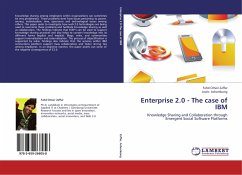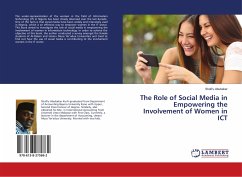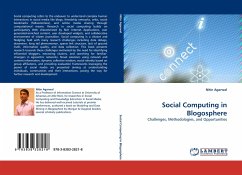Knowledge sharing among employees within organizations can sometimes be very problematic. These problems stem from issues pertaining to power, secrecy, individualism, time, ignorance and technological issues among others. This paper seeks to investigate how web 2.0 technologies are being used to overcome these problems and facilitate knowledge sharing as well as collaboration. The findings indicate that ESSP s can be used to support knowledge sharing practices and also helps to convert knowledge into its different forms (explicit and implicit). Blogs, wikis, and communities support internalization and externalization. The process of objectification is supported by wikis. Findings also indicate that the services within IBM connections platform support mass collaboration and foster strong ties among employees. In an objective manner, the paper points out some of the negative consequences of E2.0.
Bitte wählen Sie Ihr Anliegen aus.
Rechnungen
Retourenschein anfordern
Bestellstatus
Storno








